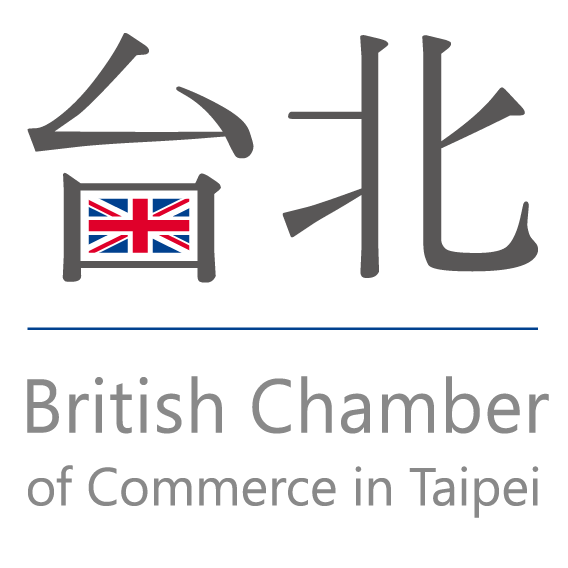Busting the myths of 'social' in ESG

In the last two opinion pieces, it was clear that Taiwan embraces ESG (Environmental, Social & Governance) as the best practice for corporate development to maintain its global high standing and attractiveness for investment.
In this third opinion piece on ESG, I will delve into what has sometimes been regarded as the "poor cousin" of the acronym and focus on the "S" or social aspect. Perhaps calling S the poor cousin is a bit harsh, or perhaps it is simply a way of saying the S aspect of ESG is the hardest to define and implement.
Read More: 'One solution fits all’ package for ESG doesn’t exist; The basics of "environmental" in Taiwan's ESG
The EU describes the type of activities that could be counted as socially sustainable as "those that contribute to tackling inequality or foster social cohesion, social integration and labor relations, or that relate to human capital or economically or socially disadvantaged communities.”
Social factors are clearly important and the definition of S also extends to include issues linked to how a company treats its staff, like employee safety, gender equality and living wages. At the national level, they relate to factors like whether human rights are being violated, workers' rights and gender equality.
These are all important issues in Taiwan, which is certainly not lagging behind the rest of the world on these issues. Worker's rights, particularly those of foreign domestic workers, are very much in the news, especially given the country's reliance on foreign domestic workers to sustain economic growth.
In fact, I have written articles before on the steps the Taiwan government is initiating to improve the rights of foreign domestic workers. For instance, employers now are required to provide COVID-19 related health insurance and cannot pass on those costs to their employees.
I think it is also important to stress that much attention is now being focused on S not least by the Taiwan Financial Services Commission (FSC), which has identified it as one of its three core strategies in defining its Green Finance Action Plan 2.
Action plan
In response to the international trend toward green finance, Taiwan's government in 2017 began implementing the Green Finance Action Plan, with the objective of transforming Taiwan into a green, low-carbon economy boasting green investment — along with green consumption and lifestyles. This initiative was then followed by the 2020 Green Finance Action Plan 2.0.
This puts further measures in place to enhance the transparency and quality of disclosures by listed companies and establish taxonomy regulations for sustainable finance in Taiwan. In its simplest form, taxonomy simply refers to a system for naming and organizing things.
While much of the focus on sustainable investing has up to now tended to be on the environmental "E" of ESG, that is now slowly changing as investors increasingly consider social or S issues.
Undoubtedly, the focus on E rather than S in the press and investor conversations is a result of the impression that E is more measurable and can be implemented with relative ease and displayed to investors. For example, it is quite straightforward to look at degrees Celsius and tons of emissions, especially when reviewing Taiwan’s goal of net-zero emissions by 2050.
Social factors, by contrast, give the impression of being harder to measure. But social issues and the need for a “just” transition are gaining prominence.
Since the pandemic, inequalities have arguably increased, livelihoods have come under increasing threat and cohesion is failing in societies around the world. While Taiwan has shown great resilience throughout the pandemic, it has certainly not been immune to the social and economic impact of COVID-19 and its variants.
In transition
The Taiwan government and the FSC ultimately recognize responsible investing as being about creating a better Taiwan for everyone. In addition to recognizing S as one of its three core strategies in defining its Green Finance Action Plan 2, the government has gone further by designating three organizations to oversee sustainable capacity building.
These are the Taiwan Academy of Banking & Finance (TABF), the Securities & Futures Institute, and the Taiwan Insurance Institute. So, I believe we must assume that social objectives and social criteria are at the very core of what ESG really means in Taiwan.
Correspondingly, Taiwanese investors are under increasing pressure to consider the S performance component in their investments. I may be seen as controversial here, but in my opinion, in the world of ESG investing, the integration of social performance assessment has seen insufficient progress to date in Taiwan.
It may seem convenient to say that ESG investing is too challenging when obliged to consider social issues, such as a company’s labor practices or community relations; or the often-argued “how can S be integrated into investment analysis? It’s just all too difficult."
Some analysts or companies fall back on the excuse of a lack of S-related data. However, it is just that, an excuse, and savvy investors should not fall for the excuse, not in this data-driven day and age.
So, let’s debunk some of the more toxic myths surrounding S investing. In this regard, I am fortunate to be able to refer to the 2021 white paper, “Amplifying the 'S' in the ESG: Investor Myth Buster," produced by the Thomson Reuters Foundation, Refinitiv, the International Sustainable Finance Center (ISFC), White & Case, Eco-Age, The Mekong Club and the Principles for Responsible Investment (PRI).
Admittedly, this is not a Taiwan specific White Paper, but it has, I believe, direct relevance to Taiwan’s ESG credentials. Indeed, it is my stated opinion that for all Taiwanese investors, it is important to proactively address these questions because, as the Working Group highlights, social issues can create key risks — they are salient and are increasingly relevant.
Debunking myths around the availability of data on S issues and their importance can also help identify more resilient and profitable investment opportunities, all to the benefit of Taiwanese investors and Taiwan as a whole.
Investor myths about S indicators
Myth 1 | Financial Materiality – Social Performance is less financially material than environmental performance | Reality – Social issues are key risks to all investors and their beneficiaries | Action – Diminish risk and fulfil fiduciary duty |
Myth 2 | Starting Point – It is too difficult to know how and where to start assessing social performance | Reality – The link between business and human rights is well established | Action – Use existing resources to improve your understanding of social performance assessment |
Myth 3 | Data – The S indicators are too hard to measure – there is no reliable and comparable data | Reality – It is possible and necessary to start using social indicators more | Action – Identify the most useful indicators and demand more data |
Myth 4 | Integration Process – Qualitative surveys or questionnaires are the best method for tackling social issues and analyzing the social aspects of performance | Reality – Qualitative approaches can be enriched by data-driven elements | Action – Use a combination of data-driven input and qualitative analysis for due diligence and engagement |
Myth 5 | Relevance to Investors – Integrating S indicators is only relevant for impact investors | Reality – S indicator integration can help identify more resilient and profitable investment opportunities | Action – Tailor your approach to social indicators to avoid missed risks and opportunities |
The action items listed above are undoubtedly a challenge for Taiwanese investors and are probably the “high water” mark for international investors as well, but Taiwan has never shied away from the difficult or aspirational. As the FSC itself notes, “Every little bit matters — We can make a difference."
The elephant in the room is data. Data now drives almost every aspect of our lives, from registration, ID, banking, investing … data is king. So, the data is there, but it may need some additional work to find it and, for the purposes of Taiwan’s ESG credentials, this data must be accessed and used (and its use must be demonstrable).
As always, I must stress the ESG message and evidence of actionable commitment to the S must come from the very top echelons of every company, and they must insist on obtaining and utilizing the relevant data. It is we the consumers that must hold them accountable for the use of data.
The usual parting challenge to my readers! What do you think your company, or indeed yourself, are doing for Taiwan’s S commitment?
Our member, Paul Shelton is an experienced banking executive with a 30-year history of working as Head of Legal and & Compliance and MLRO for the Asia Pacific branches of major international financial institutions in Japan, Singapore, Australia, and Hong Kong. He is also experienced in working with financial regulators across the Asia Pacific and provides consultancy services to Taiwanese financial and non-financial industry associations in all aspects of Compliance, AML/Sanctions, and Governance. Paul now resides in Taipei.
